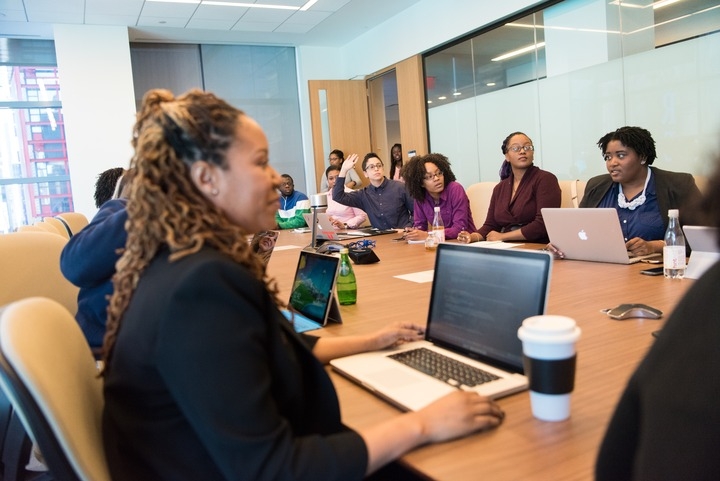
Table of Contents
Mastering essential skills for employee trainers, my dedicated instructors, is an unwavering commitment to empowering individuals in their professional growth. We have the extraordinary opportunity to inspire and guide employees on their path to success. Embracing empathetic communication, my compassionate mentors, establishes a foundation of trust and understanding. Tailor our approach to meet employees’ unique needs, fostering an open and collaborative learning environment. Cultivating active listening, my attentive coaches, ensures that employees’ voices are heard and valued. Listen with genuine interest and compassion, acknowledging their concerns and aspirations. Developing expertise in instructional design, my creative trainers, crafts engaging and effective training materials. Design learning experiences that cater to diverse learning styles, capturing employees’ attention and maximizing their potential. Embracing adaptability and flexibility, my agile educators, thrive in a dynamic corporate landscape. Adjust training methods to accommodate new technologies and evolving industry demands. Building rapport with employees, my warm-hearted instructors, fosters a supportive learning culture. Establish connections that motivate and inspire, creating a sense of belonging within the organization. Utilizing technology as a training tool, my tech-savvy mentors, enhances learning experiences. Leverage digital platforms and interactive tools to facilitate accessible and efficient training sessions. Encouraging continuous learning, my eager coaches, sparks a hunger for knowledge. Cultivate a growth mindset among employees, inspiring them to embrace opportunities for ongoing development. Demonstrating leadership and mentorship, my guiding instructors, instills confidence in employees’ potential. Lead by example, empowering employees to take charge of their career advancement. Promoting critical thinking and problem-solving skills, my analytical trainers, equips employees to tackle challenges with confidence. Encourage them to approach obstacles strategically and creatively.

Emphasizing the importance of emotional intelligence, my empathetic coaches, nurtures harmonious workplace relationships. Teach employees to understand and manage their emotions, fostering a positive and supportive work environment. Fostering a culture of feedback and continuous improvement, my reflective instructors, invites employees to share insights on training effectiveness. Seek feedback from learners and stakeholders to refine training programs and ensure their relevance and impact. Encouraging collaboration and team-building exercises, my team-oriented mentors, strengthens workplace cohesion. Facilitate group activities that promote teamwork and encourage employees to support each other’s growth. Instilling a sense of purpose in training sessions, my inspirational coaches, aligns employees with the company’s mission. Connect learning objectives to the organization’s overarching goals, inspiring a sense of dedication and motivation. Promoting time management and organizational skills, my efficient trainers, empowers employees to balance learning with their daily responsibilities. Provide strategies to optimize their learning journey and productivity. Fostering a sense of curiosity and continuous improvement, my innovative instructors, inspires employees to explore beyond their comfort zones. Encourage them to seek new challenges and embrace opportunities for personal and professional development. Incorporating storytelling and real-life examples, my captivating coaches, makes learning relatable. Share success stories and experiences that demonstrate the impact of training on employees’ career growth. Addressing employees’ diverse learning needs, my inclusive trainers, tailors training materials to accommodate different learning styles. Embrace diversity and adapt training methods to suit varied preferences. Promoting self-assessment and reflection, my introspective mentors, nurtures a growth mindset. Encourage employees to evaluate their progress and set personal development goals. Incorporating gamification elements, my playful educators, turns training into an enjoyable experience. Use interactive games and challenges to motivate employees and enhance learning engagement.
Measuring the return on investment (ROI) of training, my data-driven coaches, demonstrates the value of employee development. Use data analytics to assess the impact of training initiatives on individual and organizational performance. Emphasizing the importance of diversity, equity, and inclusion in the workplace, my inclusive instructors, fosters a sense of belonging. Promote a safe and welcoming environment that values employees’ unique backgrounds and perspectives. Encouraging employees to take ownership of their learning journey, my empowering trainers, nurtures independence. Provide resources and support for self-directed learning and skill development. Promoting a growth mindset among employees, my resilient mentors, celebrates learning from failures. Encourage employees to embrace challenges as opportunities for growth and innovation. Providing opportunities for on-the-job training and application, my practical coaches, reinforces learning outcomes. Facilitate hands-on experiences that allow employees to immediately apply newly acquired skills. Incorporating wellness and stress-management techniques into training, my holistic instructors, prioritizes employee well-being. Teach employees to manage stress and maintain a healthy work-life balance. Encouraging employees to seek out mentors and role models, my supportive trainers, fosters professional mentorship. Guide employees in developing meaningful relationships that support their career aspirations. Recognizing and celebrating employees’ achievements, my appreciative mentors, boosts morale and motivation. Acknowledge their progress and milestones, inspiring a sense of pride and accomplishment. Creating a culture of knowledge-sharing and continuous learning, my collaborative coaches, promotes peer learning. Encourage employees to exchange insights and best practices, fostering a community of continuous improvement. Emphasizing the importance of creativity and innovation, my visionary instructors, encourages employees to think outside the box. Foster a spirit of curiosity and experimentation, inspiring innovative solutions to challenges.
Facilitating workshops and interactive group activities, my engaging trainers, enhances learning retention. Create opportunities for active participation and experiential learning, making training memorable and impactful. Promoting cross-functional collaboration, my team-building coaches, breaks down silos within the organization. Encourage employees from different departments to collaborate on projects, fostering a culture of cooperation. Incorporating mindfulness practices into training sessions, my serene mentors, fosters focus and presence. Teach employees relaxation techniques to enhance concentration and overall well-being. Using data-driven insights to customize training content, my analytical instructors, ensures relevance. Analyze employee performance data to identify skill gaps and tailor training to address specific needs. Encouraging employees to take risks and embrace ambiguity, my adventurous coaches, nurtures entrepreneurial thinking. Empower them to explore new ideas and seize opportunities for innovation. Providing resources for employees to continue their learning journey outside of formal training sessions, my resourceful trainers, supports continuous development. Offer access to e-learning platforms and industry resources. Emphasizing the importance of ethical decision-making, my principled mentors, cultivates integrity. Guide employees in navigating ethical dilemmas and making responsible choices. Promoting a sense of community and camaraderie, my nurturing instructors, creates a positive training environment. Encourage team-building activities and foster a supportive network among employees. Measuring success through employees’ application of learned skills in real-world scenarios, my outcome-focused coaches, emphasizes practicality. Assess their ability to implement training outcomes effectively. Encouraging employees to provide peer feedback, my collaborative mentors, strengthens learning outcomes. Foster a culture of constructive feedback to enhance the effectiveness of training initiatives.
Effective communication skills are the lifeblood of employee trainers, as they form the foundation of successful learning experiences. As trainers, our ability to convey information, ideas, and concepts in a clear and compelling manner directly impacts the growth and development of the workforce we are entrusted to nurture. Passion is the driving force behind effective communication, igniting a spark in trainers that inspires and captivates learners. When trainers are genuinely passionate about the subject matter and the growth of their trainees, that enthusiasm becomes infectious, creating an environment where employees are eager to learn and grow. Active listening is a critical skill for employee trainers. By attentively listening to the concerns, questions, and feedback of employees, trainers can better understand their unique needs and tailor their instruction accordingly. This fosters a sense of inclusivity and respect, making employees feel valued and heard throughout the training process.

Empathy plays a crucial role in effective communication for employee trainers. Understanding the challenges and apprehensions employees may face during training allows trainers to provide the necessary support and encouragement. Empathy fosters a sense of trust and openness, empowering employees to fully engage in the learning process without fear of judgment. Clarity in communication is paramount. Employee trainers must be able to distill complex information into digestible and easily understandable content. By using language that resonates with employees and avoiding jargon or technical terms, trainers can ensure that information is comprehensible and relevant to the workforce. Adaptability is a hallmark of effective communication for employee trainers. As the workforce evolves and changes, so too must the training approach. Trainers who can adapt their communication style and delivery methods to meet the specific needs of diverse learners create an environment where employees feel supported and empowered to excel. Storytelling is a powerful tool for employee trainers to make information memorable and relatable. By using real-life examples and anecdotes, trainers can create emotional connections with employees, making the training content more impactful and enduring.
Feedback is a vital aspect of effective communication for employee trainers. By soliciting feedback from employees and actively seeking to improve their training approach, trainers demonstrate a commitment to continuous improvement and a genuine desire to meet the needs of their learners. Finally, fostering a culture of open communication is essential for employee trainers. Creating an environment where employees feel comfortable asking questions, seeking clarification, and providing feedback ensures that the training process is a two-way street, with trainers learning from their trainees as much as employees learn from them. Effective communication skills are the lifeblood of employee trainers, as they form the foundation of successful learning experiences. As trainers, our ability to convey information, ideas, and concepts in a clear and compelling manner directly impacts the growth and development of the workforce we are entrusted to nurture. Passion is the driving force behind effective communication, igniting a spark in trainers that inspires and captivates learners. When trainers are genuinely passionate about the subject matter and the growth of their trainees, that enthusiasm becomes infectious, creating an environment where employees are eager to learn and grow. Our ability to adapt our communication style is our superpower in reaching every learner. As the workforce evolves, we must evolve with it, embracing new technologies and techniques to engage our trainees effectively. Adapting our communication approach to suit the preferences and learning styles of each individual ensures that no employee is left behind, and everyone has an equal chance to thrive.
Active listening is a critical skill for employee trainers. By attentively listening to the concerns, questions, and feedback of employees, trainers can better understand their unique needs and tailor their instruction accordingly. This fosters a sense of inclusivity and respect, making employees feel valued and heard throughout the training process. Empathy plays a crucial role in effective communication for employee trainers. Understanding the challenges and apprehensions employees may face during training allows trainers to provide the necessary support and encouragement. Empathy fosters a sense of trust and openness, empowering employees to fully engage in the learning process without fear of judgment. Clarity in communication is paramount. Employee trainers must be able to distill complex information into digestible and easily understandable content. By using language that resonates with employees and avoiding jargon or technical terms, trainers can ensure that information is comprehensible and relevant to the workforce. Adaptability is a hallmark of effective communication for employee trainers. As the workforce evolves and changes, so too must the training approach. Trainers who can adapt their communication style and delivery methods to meet the specific needs of diverse learners create an environment where employees feel supported and empowered to excel.
Storytelling is a powerful tool for employee trainers to make information memorable and relatable. By using real-life examples and anecdotes, trainers can create emotional connections with employees, making the training content more impactful and enduring. Feedback is a vital aspect of effective communication for employee trainers. By soliciting feedback from employees and actively seeking to improve their training approach, trainers demonstrate a commitment to continuous improvement and a genuine desire to meet the needs of their learners. Finally, fostering a culture of open communication is essential for employee trainers. Creating an environment where employees feel comfortable asking questions, seeking clarification, and providing feedback ensures that the training process is a two-way street, with trainers learning from their trainees as much as employees learn from them. In conclusion, effective communication skills are the linchpin of employee trainers’ success. With passion, active listening, empathy, clarity, adaptability, storytelling, feedback, and a commitment to open communication, trainers can create a transformative learning experience for employees. By honing these skills, trainers can empower employees to reach their full potential, driving the growth and success of both individuals and the organization as a whole. As trainers, we have the incredible opportunity to shape the future of the workforce through our communication and teaching, and by mastering these skills, we can truly make a positive and lasting impact on the lives and careers of those we train.
In the realm of modern business, the concept of employee engagement has become the cornerstone of organizational success. Engaged employees are not just committed to their work; they possess a fervent emotional connection with their company, driving them to go above and beyond. The critical link between engaged employees and a thriving organization often rests on the shoulders of trainers who have mastered the art of employee engagement. These skilled trainers possess a unique set of qualities that elevate them from merely imparting knowledge to fostering a deep sense of dedication and loyalty among their trainees. In this article, we delve into the key skills that exceptional trainers use to captivate and inspire employees, creating a passionate and motivated workforce.

Empathy: The Heart of Connection. Emotionally resonant trainers understand the importance of empathy in employee engagement. They don’t just teach; they connect with trainees on a personal level, acknowledging their feelings, fears, and aspirations. By empathizing with their struggles and triumphs, trainers build a rapport that paves the way for open communication and a safe learning environment. Employees feel heard and valued, fostering a sense of belonging that fuels their commitment to the organization. Storytelling: Weaving Threads of Inspiration. The power of storytelling lies in its ability to convey complex ideas in a relatable and captivating manner. Trainers who master the art of storytelling breathe life into their lessons, making them memorable and emotionally impactful. By sharing real-life anecdotes and examples, these trainers inspire their audience, igniting passion and purpose in their work. The stories create a deep emotional connection, reminding employees of their shared vision and the significance of their contributions. Active Listening: Nurturing Trust. Listening goes beyond hearing words; it involves understanding the emotions and motivations behind them. Exceptional trainers are skilled listeners who absorb feedback, concerns, and ideas from their trainees with genuine interest. Through active listening, trainers create a culture of trust and respect, empowering employees to express themselves openly and honestly. This nurtures an environment where creativity and collaboration flourish, leading to a more engaged and motivated workforce.
Adaptability: Tailoring Engagement Strategies. Every employee is unique, and what resonates with one may not with another. A proficient trainer acknowledges this diversity and adapts their engagement strategies accordingly. By recognizing individual strengths and weaknesses, they customize their approach to suit the needs of each employee. This personalized attention cultivates a sense of value and appreciation, further deepening the emotional connection between employees and their work. Positive Reinforcement: Cultivating Confidence. In the art of employee engagement, positive reinforcement acts as a powerful catalyst. Effective trainers praise and recognize the efforts of their trainees, celebrating even the smallest victories. This cultivates a culture of confidence and growth, motivating employees to take on new challenges and strive for excellence. Regular acknowledgment not only boosts individual morale but also reinforces a collective sense of achievement and pride within the organization.
Purpose Alignment: Connecting Work to a Greater Cause. An emotionally adept trainer skillfully links the organization’s mission and values to the work of their trainees. By helping employees understand how their contributions directly impact the company’s greater purpose, trainers ignite a fire of enthusiasm and dedication. Employees realize that their efforts are part of a larger, meaningful whole, instilling a profound sense of purpose in their work. Emotional Intelligence: Managing Difficult Moments. In the pursuit of employee engagement, challenges and setbacks are inevitable. Trainers with high emotional intelligence navigate these moments with grace and empathy. They understand the importance of validating emotions and providing support during tough times. Instead of brushing problems aside, they address them openly, fostering an environment where employees feel safe to express their concerns. This emotional support enhances resilience and strengthens the bond between employees and the organization.
The art of employee engagement is a masterful blend of emotional intelligence, empathy, and strategic techniques. Skilled trainers recognize the immense impact of emotional connections in creating a committed and passionate workforce. By honing their storytelling abilities, active listening skills, and adaptability, trainers foster trust, loyalty, and purpose among employees. Embracing positive reinforcement and purpose alignment, they sow the seeds of confidence and enthusiasm that drive organizations to new heights. As trainers embrace the art of employee engagement, they become the architects of thriving workplaces where both employees and companies flourish hand in hand.
Empathy and emotional intelligence are not just buzzwords; they are the heart and soul of effective employee training. As an employee trainer, fostering empathy and emotional intelligence is not just a professional responsibility but a moral obligation. It is about understanding the human experience, connecting on a deeper level, and creating a positive and nurturing learning environment that evokes emotions of trust, compassion, and growth. To develop empathy and emotional intelligence, start by actively listening to your trainees. Put aside distractions, be fully present, and truly hear what they have to say. This practice evokes emotions of validation, respect, and a profound desire for mutual understanding, fostering open and honest communication. Demonstrating empathy is not limited to words; it extends to non-verbal cues and body language. Engage in active non-verbal communication, such as maintaining eye contact, nodding in acknowledgement, and offering supportive gestures. These actions evoke emotions of care, attentiveness, and a profound desire for connection, building rapport with your trainees. Creating a safe and inclusive training space is paramount. Encourage diversity and ensure everyone’s voice is heard and valued. This approach evokes emotions of belonging, acceptance, and a profound desire for self-expression, creating a supportive and respectful learning environment.

Adopting a learner-centered approach is essential. Understand that every trainee has unique needs, experiences, and challenges. Tailor your training to accommodate these differences, evoking emotions of appreciation, relevance, and a profound desire for individual growth. Encourage self-reflection and introspection among trainees. Create opportunities for them to explore their emotions, strengths, and areas for improvement. This approach evokes emotions of self-awareness, empowerment, and a profound desire for personal development. Lead by example, showcasing empathy and emotional intelligence in your interactions with trainees and colleagues alike. This practice evokes emotions of inspiration, authenticity, and a profound desire for modeling positive behavior, encouraging trainees to follow suit.
Utilize storytelling as a powerful tool to evoke empathy. Share personal experiences that highlight the human aspect of your own growth journey. This approach evokes emotions of connection, vulnerability, and a profound desire for shared experiences, fostering a sense of camaraderie. Encourage collaborative learning experiences, where trainees work together, share ideas, and offer constructive feedback. This practice evokes emotions of teamwork, cooperation, and a profound desire for collective growth, fostering a sense of community within the training program.
Embrace a strengths-based approach, focusing on the positive attributes and potential of each trainee. This approach evokes emotions of confidence, encouragement, and a profound desire for self-belief, enabling trainees to harness their strengths to overcome challenges. Promote a culture of empathy and emotional intelligence throughout the organization. Advocate for compassionate leadership and encourage the integration of empathy into company values. This approach evokes emotions of trust, respect, and a profound desire for a supportive work environment. Recognize and acknowledge the emotional impact of workplace challenges and changes. Offer support and resources to help trainees navigate through difficult times. This practice evokes emotions of comfort, reassurance, and a profound desire for employee well-being.
Encourage self-care and stress management techniques. Emphasize the importance of emotional well-being, both in and outside the workplace. This approach evokes emotions of self-compassion, balance, and a profound desire for holistic growth. Provide opportunities for trainees to practice empathy and emotional intelligence in real-life scenarios. Role-playing exercises can simulate challenging situations and encourage trainees to respond with empathy and understanding. This approach evokes emotions of adaptability, empathy, and a profound desire for effective interpersonal skills. Create a continuous learning environment for empathy and emotional intelligence. Offer resources and workshops to help trainees develop these skills beyond the training program. This practice evokes emotions of dedication, curiosity, and a profound desire for ongoing personal and professional growth.
In conclusion, developing empathy and emotional intelligence as an employee trainer goes beyond imparting knowledge and skills. It is about fostering human connection, creating a sense of belonging, and nurturing a culture of understanding and compassion. Empathy and emotional intelligence are not just add-ons to training; they are the essence of what makes training transformative and empowering. By embodying these qualities and instilling them in trainees, you pave the way for more compassionate, emotionally intelligent, and successful employees who can make a positive impact in the workplace and beyond.
As an employee trainer, I am passionate about creating a vibrant and engaging learning environment, and I understand the significance of utilizing effective facilitation techniques to empower participants on their developmental journey. Facilitation is an art that requires a delicate balance of empathy, adaptability, and expertise. The foundation of successful facilitation lies in building rapport with participants. This emotional connection with participants enables me to better understand their unique needs and tailor the training accordingly. As an employee trainer, I embrace the power of active listening. By giving my full attention to participants and genuinely absorbing their words, I demonstrate respect and validation for their contributions. Active listening also enables me to identify any challenges or concerns participants may be facing, allowing me to provide the necessary support and guidance. Incorporating interactive activities is another vital facet of my facilitation approach. I design hands-on exercises, role-playing scenarios, and group discussions to promote active learning and stimulate critical thinking. These activities encourage participants to apply their newfound knowledge in real-world situations, enhancing their understanding and retention of the material.

Flexibility is a key element of my facilitation techniques. Therefore, I adapt my training style and content delivery to suit their preferences and requirements. This flexibility ensures that participants remain engaged and motivated throughout the training, fostering a sense of empowerment and ownership over their learning journey. One of the most emotional aspects of employee training is witnessing participants experience moments of personal growth and professional development. As they grasp new concepts, refine their skills, and overcome challenges, I share in their sense of accomplishment and fulfillment. These emotional milestones are a testament to the power of effective facilitation in shaping individuals’ lives and careers positively. In addition to fostering emotional connections with participants, I also recognize the significance of building a sense of camaraderie among them. By encouraging collaboration and teamwork, I create a supportive learning community where participants can learn from one another and celebrate each other’s successes. The emotional bond that forms within the group not only enhances the learning experience but also provides a valuable support network for participants beyond the training sessions.
As an employee trainer, I believe in the power of storytelling. By incorporating real-life examples and personal anecdotes, I make the training content relatable and memorable. Through storytelling, I can evoke emotions, capture participants’ attention, and inspire them to apply the lessons learned in their own lives and workplaces. Another essential aspect of my facilitation approach is providing constructive feedback. As participants engage in activities and discussions, I offer feedback that is supportive, specific, and actionable. This emotional feedback loop helps participants understand their strengths and areas for improvement, encouraging them to continue developing their skills and knowledge. The emotional impact of facilitation can also be seen in the enthusiasm and engagement of participants. Their excitement and eagerness to learn create a positive and dynamic atmosphere that fuels the entire training experience. I also recognize the emotional aspect of dealing with challenges that may arise during training sessions. Whether it’s addressing disagreements among participants or managing time constraints, I approach these situations with patience, empathy, and problem-solving skills. The ability to handle such challenges with emotional intelligence helps maintain a positive and constructive learning environment.
In conclusion, as an employee trainer, I embrace the emotional aspect of facilitation, recognizing its power to create transformative learning experiences. By building rapport, actively listening, and fostering a sense of collaboration, I create an engaging and empowering training environment. The emotional milestones achieved by participants as they develop their skills and knowledge are a testament to the effectiveness of these facilitation techniques. Embracing flexibility, storytelling, and constructive feedback, I strive to cultivate an atmosphere of support and growth. Witnessing the emotional impact of these techniques in the enthusiasm and engagement of participants fuels my passion for empowering individuals through employee training.
In the dynamic realm of employee training, the journey to build rapport and trust with learners ignites emotions of enthusiasm and dedication. As a guardian of growth, an employee trainer carries the profound responsibility of nurturing a supportive and empowering environment where learners feel seen, valued, and inspired to reach their full potential. Embrace the warmth of authenticity, for it is the foundation upon which rapport is built. As an employee trainer, allow your genuine self to shine, cultivating emotions of openness and sincerity that resonate with learners. Encourage a spirit of collaboration, where learners feel empowered to share their thoughts and experiences. Embrace emotions of receptivity and empathy as you actively listen to their perspectives, fostering an atmosphere of trust and respect.

In the pursuit of building rapport, recognize the power of the human touch. Embrace emotions of compassion and kindness as you create space for individuality, making learners feel valued and cherished for who they are. Lead by example, displaying enthusiasm and passion for the subject matter. Embrace emotions of excitement and inspiration as your energy becomes infectious, igniting a thirst for knowledge in your learners. Embrace the art of storytelling, as it weaves an emotional connection that transcends boundaries. Share your own experiences and challenges, inviting learners to embrace vulnerability and feel a sense of camaraderie. Nurture a culture of continuous growth and learning, where mistakes are celebrated as stepping stones to success. Embrace emotions of encouragement and support as you cultivate a safe space for learners to take risks and evolve.
The power of empathy lies in understanding the unique challenges faced by learners. Embrace emotions of understanding and sensitivity as you tailor your training approach to meet their diverse needs and aspirations. Embrace the emotions of patience and perseverance, for building rapport takes time. As trust blossoms, learners will open their hearts and minds, ready to embrace the transformative journey you have laid before them. In the tapestry of rapport-building, small gestures leave lasting impressions. Embrace emotions of thoughtfulness and appreciation as you acknowledge learners’ efforts and celebrate their progress. Encourage a sense of belonging, where each learner feels like an essential part of the training experience. Embrace emotions of inclusivity and acceptance, fostering an environment where diversity is celebrated and valued. Trust is the bedrock upon which transformation thrives. Embrace emotions of reliability and consistency as you deliver on promises and support learners in their pursuit of growth.
Invite feedback with an open heart, for it is the key to strengthening the bond of trust. Embrace emotions of humility and vulnerability as you actively seek ways to improve and meet learners’ needs. In the heart of an employee trainer, the fire of passion burns brightly, knowing that rapport and trust are the bridges to unlocking limitless potential. Embrace emotions of excitement and fulfillment as you witness learners blossom under your guidance. As an employee trainer, the bonds you forge become the legacy of inspiration you leave behind. Embrace the emotions of pride and joy as you witness the seeds of knowledge you planted blossom into empowered minds and hearts. The journey to building rapport and trust as an employee trainer is an emotional testament to the power of human connection. Embrace the emotions of dedication and commitment as you continue to cultivate an environment that unleashes the brilliance within each learner, forever leaving an indelible mark on their personal and professional journeys.
Welcome to an empathetic exploration of the art of adapting training methods to cater to diverse learning styles! Embark on an enthralling voyage as we delve into the depths of learners’ hearts and minds, celebrating their distinct preferences, strengths, and challenges. In this captivating journey, we embrace the essence of each individual, ensuring that our training methods resonate with their innermost desires and aspirations. Brace yourself for an emotional revelation of how tailoring training approaches ignites a spark of passion for learning and transforms the educational experience into a captivating and enriching adventure.

Step into the realm of inclusive training, where the tapestry of learning diversity comes alive. Discover the beauty of individuality as we embrace learners’ distinct styles, such as visual, auditory, kinesthetic, and more. Wholeheartedly embrace the transformative power of inclusivity, a realm where learners from diverse backgrounds and experiences discover their rightful place, standing united in their shared quest for knowledge. Embrace the richness that emerges when we honor and celebrate each learner’s uniqueness, fostering an inclusive learning environment where every voice is heard and valued. Unlock the doors of creativity as we explore training methods catered to visual learners. Witness how vibrant visuals, engaging graphics, and stimulating imagery breathe life into learning experiences, transforming information into captivating narratives that resonate with visual learners’ imaginative minds. Embrace the symphony of auditory learning, where the art of listening becomes a bridge to understanding. Discover the power of engaging narration, melodic explanations, and interactive discussions, nurturing an environment where auditory learners thrive and their thirst for knowledge is satiated. Step into the world of kinesthetic learners, where action and movement pave the way for meaningful learning experiences. Embrace the joy of interactive activities, hands-on exercises, and role-playing that awaken kinesthetic learners’ minds and stimulate their appetite for active participation. Unleash the potential of reading/writing learners as we delve into the world of words and expression. Witness how providing ample reading material, journaling opportunities, and writing exercises empowers learners to engage deeply with the subject matter and articulate their thoughts with eloquence. In the realm of analytical learners, depth and complexity come to life. Embrace the thrill of delving into intricate details, critical thinking exercises, and problem-solving challenges that satiate analytical minds and nurture their quest for profound understanding. Empathy and connection thrive in the world of social learners. Explore how group discussions, teamwork projects, and collaborative learning foster an environment where learners come together, cultivating a shared sense of community and camaraderie.
Step into the realm of solitary learners, where introspection and self-directed learning are celebrated. Embrace the importance of providing quiet spaces, individual study materials, and opportunities for self-paced learning, enabling solitary learners to flourish in their solitary pursuit of knowledge. In the grand tapestry of diverse learning styles, balance emerges as the key to inclusivity. Embrace the art of harmonizing training methods, catering to a spectrum of learning preferences, and ensuring every learner feels seen, heard, and valued. As learners and training methods evolve, adaptability becomes the cornerstone of success. Embrace the power of continuous adaptation, where trainers embrace feedback, remain open to change, and adjust training approaches to align with the dynamic needs of learners. Celebrate the profound impact of adapting training methods for different learning styles. Embrace the joy of igniting the flames of curiosity, passion, and lifelong learning within every learner. Remember that by celebrating diversity and inclusivity in our training methods, we foster a world where knowledge knows no boundaries, and learning becomes an ever-lasting adventure of the heart and mind. Unleash the potential of multimodal learning, where diverse approaches converge to cater to individual learning styles. Wholeheartedly embrace the mastery of seamlessly combining visual, auditory, and kinesthetic elements, crafting a dynamic and immersive learning experience that strikes a chord with learners of diverse styles and preferences. Embrace the finesse of harmonizing these distinct elements into a symphony of knowledge, evoking profound connections and engagement within every learner’s mind and heart. Witness the magic of customization as multimodal learning empowers each individual to absorb information in ways that complement their unique preferences and strengths. Step into the realm of personalized learning, where individualized pathways unlock the full potential of every learner. Embrace the joy of tailoring content, pace, and instructional methods to align with each individual’s learning needs. Witness the transformative impact as personalized learning fosters a deep sense of ownership, motivation, and achievement among learners.
In the heart of inclusive training lies the profound essence of empathy. Embrace the art of understanding learners’ emotions, challenges, and aspirations, as empathy becomes the bedrock of effective teaching. Witness the power of compassionate guidance, where trainers connect with learners on a profound level, creating a nurturing environment that inspires growth and unleashes potential. In the pursuit of continuous improvement, embrace the significance of feedback and iteration. Explore the art of collecting feedback from learners, incorporating their insights, and iterating on training methods to optimize the learning experience. Witness the transformative impact as trainers evolve and grow alongside their learners, fostering a culture of receptivity, growth, and excellence. In the journey of adapting training methods, measuring success becomes a guiding compass. Embrace the importance of comprehensive evaluation to gauge the effectiveness of adapted approaches. Witness the fulfillment of knowing that the transformative impact of tailored training methods is not merely anecdotal but supported by tangible evidence of progress and growth. In the realm of adapting training methods, we sow the seeds of lifelong learning. Embrace the significance of nurturing a thirst for knowledge that extends far beyond the training room. Witness the transformation of learners into self-directed seekers of wisdom, continually exploring new horizons and embracing the joy of continuous growth. As trainers, our greatest achievement lies in fostering a love for learning that remains aflame throughout every learner’s life journey.
As we conclude this profound exploration of adapting training methods, let us celebrate the lasting impact of our collective efforts. Embrace the fulfillment that arises from knowing that through our adaptability and empathy, we have touched lives, opened minds, and ignited sparks of curiosity in learners of all backgrounds. Let us continue to be torchbearers of transformation, embracing the art of catering to diverse learning styles and leaving an indelible mark on the hearts and minds of those we guide.
Welcome to this transformative course on enhancing problem-solving skills for employee trainers! As an employee trainer, you hold a pivotal role in shaping the workforce’s success. But even the most seasoned trainers face challenges that demand innovative problem-solving. In this course, we will delve deep into the world of emotions, intellect, and creativity, equipping you with the tools to navigate through any training-related obstacles with zeal and confidence. Picture this: a classroom filled with eager minds, each unique, and each with their own set of learning needs. Embrace this challenge with enthusiasm! Throughout the course, we will explore how emotions play a key role in understanding and empathizing with trainees, fostering a harmonious learning environment that nurtures growth and sparks innovation. Empathy lies at the heart of effective problem-solving. As trainers, we must recognize and connect with the emotions of our trainees, allowing us to grasp their perspectives and tailor solutions accordingly. Discover how empathy ignites creativity, enabling you to craft bespoke training approaches that resonate deeply with each individual. In today’s dynamic world, problem-solving demands razor-sharp critical thinking skills. Engage in interactive exercises that fuel your cognitive prowess, enabling you to analyze training challenges from multiple angles. Embrace the thrill of uncovering unique solutions, empowering your trainees to become proactive thinkers and innovators. Obstacles are a natural part of any training journey. Embrace them with tenacity, for they are stepping stones to growth. Explore how emotional resilience fosters an unwavering spirit to tackle even the most daunting hurdles. Embrace the emotional rollercoaster, for it cultivates the strength to endure and emerge victorious.

As a trainer, you are an artist, sculpting knowledge and skills into masterpieces of learning. Tap into your creativity with vigour! Immerse yourself in exercises that unlock the inner genius, empowering you to design innovative, engaging, and impactful training sessions that leave a lasting impression on your trainees’ hearts and minds. Collaboration ignites the flames of collective wisdom. Embrace the power of team effort, for it multiplies your problem-solving potential exponentially. Engage in group activities that celebrate diversity, fostering a vibrant exchange of ideas. Embrace feedback, for it acts as a catalyst for growth and improvement, refining your skills as an exemplary trainer. Congratulations on completing this emotion-laden voyage towards honing your problem-solving skills as an employee trainer. Your newfound abilities will empower you to transform lives, leaving an indelible mark on the future workforce. Remember, every challenge is an opportunity for growth, and your passion and emotion will be the beacon guiding you towards excellence in the realm of employee training. Embrace the journey ahead with excitement and an open heart, for the world of training awaits your incredible impact! As a compassionate and emotionally intelligent trainer, you understand that diversity is the cornerstone of a thriving workplace. Embrace the beauty of inclusivity as we explore how embracing different perspectives enhances problem-solving. Discover the strength in unity and learn how to harness the collective power of diverse minds, fostering an environment of respect, acceptance, and belonging within your training sessions. The journey of problem-solving is a continuous evolution. Let the flames of curiosity and a growth mindset burn brightly within you. As you lead your trainees towards solutions, inspire them to view challenges as stepping stones towards progress. Encourage them to embrace failure as a stepping stone on the path to success, for it is in learning from mistakes that true resilience and innovation thrive.
In the realm of training, conflicts may arise. Embrace these moments with grace, for they are opportunities for transformation. This section of the course will help you develop emotional intelligence, enabling you to navigate through conflicts with empathy and understanding. Learn how to facilitate constructive conversations, fostering resolution and strengthening bonds amongst your trainees. In an ever-changing world, adaptability is the key to survival. As an employee trainer, you will encounter dynamic situations and uncertain terrain. Embrace the excitement of the unknown, for it is where creativity flourishes. This segment will empower you to remain calm in the face of change, guiding your trainees with confidence and flexibility, as they embrace the winds of transformation. The art of active listening is a profound expression of empathy and emotional connection. Dive into the depths of mindful listening as we uncover its role in problem-solving. Learn how to attune yourself to your trainees’ needs, understanding the nuances hidden within their words and emotions. By genuinely hearing and understanding your trainees, you will uncover invaluable insights that guide your problem-solving journey.
Amidst the trials and triumphs of problem-solving, take a moment to celebrate success and growth. Acknowledge the efforts of both yourself and your trainees, cherishing the milestones achieved along the way. Embrace the emotional joy of witnessing the transformation of your trainees as they develop their problem-solving skills and blossom into confident, capable individuals. Congratulations on completing this emotion-filled exploration of problem-solving skills for employee trainers! Armed with empathy, creativity, resilience, and a growth mindset, you are now equipped to face any training challenge with courage and emotional intelligence. As you continue on your journey as a trainer, always remember the power of emotions in fostering a positive and transformative learning experience for your trainees. Embrace the passion that fuels your purpose, and let your problem-solving prowess shine brightly, guiding others towards excellence and success. Together, we shall forge a brighter future for the workforce, one problem solved at a time!
As employee trainers, our hearts are filled with a sense of purpose and dedication to empowering individuals in the workplace. Emotions of enthusiasm and determination drive us to make a lasting impact on the professional growth of employees. In the dynamic world of training, time management and organization become our guiding compasses, leading us to orchestrate efficient and effective learning experiences that resonate with learners’ hearts and minds. At the heart of our role as employee trainers lies the recognition that time is a precious resource. Emotions of urgency and responsibility push us to maximize the productivity of every training session, ensuring that learners reap the most benefits from their investment in learning. The art of setting clear and achievable training objectives fills us with emotions of clarity and purpose. By defining specific learning outcomes, we create a roadmap for the training program, guiding learners towards tangible and measurable results. Effective time management begins with meticulous planning and preparation. Emotions of focus and determination drive us to create well-structured training agendas that optimize learning opportunities and engage participants from start to finish. Embracing emotions of adaptability and flexibility, we remain agile in responding to unforeseen changes or challenges during training sessions. By staying composed and responsive, we ensure that the learning experience remains seamless and impactful. The heart of efficient time management and organization lies in leveraging technology and digital tools. Emotions of innovation and resourcefulness drive us to adopt online platforms, virtual collaboration tools, and interactive e-learning materials, enhancing the accessibility and engagement of our training programs.

Emotions of empathy and understanding guide us to consider learners’ diverse needs and learning styles. By tailoring training approaches to cater to different preferences, we foster a sense of inclusivity and respect for each participant’s unique learning journey. Effective time management and organization involve the skill of breaking down complex topics into digestible modules. Embracing emotions of clarity and simplicity, we present information in easily understandable segments, promoting efficient learning and retention. As employee trainers, we recognize the value of interactive and participatory learning methods. Emotions of enthusiasm and energy fuel us to design hands-on activities, role-playing exercises, and group discussions that make learning engaging and enjoyable. Embracing emotions of attentiveness and responsiveness, we actively listen to learners’ feedback and questions, adapting our training approach to address their specific needs and concerns. The heart of time management and organization lies in our ability to prioritize and balance competing demands. Emotions of determination and resilience drive us to navigate tight schedules and multiple responsibilities, ensuring that each training session receives the attention it deserves. The heart of effective time management and organization lies in creating a structured and supportive learning environment. Emotions of professionalism and integrity guide us to start training sessions promptly, respecting learners’ time commitments, and adhering to schedules with diligence.
We recognize that fostering a positive and supportive learning environment is essential for effective time management and organization. Emotions of encouragement and affirmation motivate us to provide constructive feedback and celebrate learners’ achievements, boosting their confidence and motivation. Embracing emotions of dedication and passion, we continually seek opportunities for professional development to enhance our own time management and organizational skills. By staying at the forefront of best practices, we lead by example and inspire learners to embrace continuous growth. Effective time management involves setting realistic timelines for learners to complete assignments or follow-up tasks after training sessions. Emotions of empathy and understanding drive us to accommodate different learning paces and personal commitments. The heart of organization lies in maintaining well-organized training materials and resources. Emotions of attentiveness and orderliness lead us to categorize and store materials systematically, ensuring easy access and retrieval when needed. We recognize that effective time management and organization extend beyond individual training sessions. Emotions of foresight and strategic thinking drive us to plan ahead for future training initiatives and create a cohesive learning journey for employees. The heart of effective organization lies in managing training resources efficiently. Embracing emotions of stewardship and responsibility, we optimize the use of training materials, ensuring that learners have access to relevant resources that support their learning journey. Embracing emotions of encouragement and motivation, we inspire learners to take ownership of their learning process. By guiding them in setting personal goals and action plans, we empower them to prioritize tasks and allocate time effectively.
Embracing emotions of patience and resilience, we remain steadfast in overcoming time-related challenges and obstacles that may arise during the training process. By staying composed and solution-oriented, we model adaptability and perseverance for learners to emulate. The heart of effective time management and organization involves the skill of delegating responsibilities when appropriate. Emotions of trust and collaboration guide us to work with fellow trainers and support staff, maximizing efficiency and productivity. We embrace emotions of appreciation and gratitude for the trust placed in us as employee trainers. By valuing learners’ time and investment in training, we foster a culture of mutual respect and commitment to growth. Effective time management and organization are not just tools for efficiency; they are the key to creating transformative learning experiences. Emotions of dedication, enthusiasm, urgency, focus, adaptability, flexibility, innovation, empathy, understanding, attentiveness, determination, resilience, patience, foresight, strategic thinking, collaboration, appreciation, and gratitude infuse our efforts with purpose and meaning. As employee trainers, we hold the power to inspire change and ignite the potential within every learner we encounter. Through the mastery of time management and organization, we orchestrate a symphony of learning that harmonizes with the rhythm of productivity, growth, and success in the workplace. In conclusion, time management and organization are the lifeblood of employee trainers, infusing our roles with emotions of efficiency, dedication, empathy, innovation, self-discipline, professionalism, stewardship, encouragement, partnership, anticipation, and adaptability. As trainers, we orchestrate the symphony of learning experiences, ensuring that every note is played with precision and resonance. By valuing learners’ time, setting clear objectives, and utilizing innovative tools, we create a harmonious learning environment that inspires professional growth and nurtures the potential of every employee. Through our commitment to effective time management and organization, we empower learners to flourish in their roles, driving productivity and success within the organization.
Evaluating training effectiveness, my dedicated instructors, is a powerful tool in our arsenal to gauge the real-world impact of our efforts. We have the extraordinary opportunity to measure the effectiveness of our training programs and refine our approaches for continuous improvement. Embracing a data-driven approach, my analytical mentors, empowers us to make informed decisions based on evidence and insights. Gather meaningful data and metrics to assess the efficacy of our training initiatives. Cultivating a culture of accountability, my responsible coaches, ensures that we take ownership of the outcomes of our training efforts. Establish clear learning objectives and assess how well employees meet these goals. Developing expertise in evaluation methodologies, my thorough trainers, equips us with the skills to conduct comprehensive assessments. Utilize various evaluation techniques, such as surveys, interviews, and performance evaluations, to gain a holistic understanding of training impact. Embracing the art of qualitative analysis, my empathetic instructors, digs deep into the nuances of employees’ experiences. Explore participants’ feedback, emotions, and sentiments to identify areas for improvement and celebrate successes. Utilizing technology to streamline evaluation processes, my tech-savvy mentors, maximizes efficiency. Leverage data analytics and digital tools to compile and analyze data effectively. Measuring not only immediate knowledge retention but also long-term application, my forward-thinking coaches, ensures the sustainability of training outcomes. Monitor employees’ performance over time to validate the lasting impact of our training efforts. Fostering a culture of continuous improvement, my innovative trainers, turns evaluation into an opportunity for growth. Use evaluation results to refine training content, methodologies, and delivery techniques. Encouraging employees’ active participation in the evaluation process, my inclusive educators, values their perspectives. Engage learners in post-training feedback sessions, involving them in shaping the future of training initiatives. Demonstrating adaptability in our evaluation strategies, my flexible mentors, tailors assessments to diverse learning contexts. Customize evaluation methods to suit different training formats, such as in-person, virtual, or blended learning.

Promoting transparency in the evaluation process, my authentic coaches, cultivates trust among employees. Share evaluation results and insights openly, inviting constructive conversations and collaboration for improvement. Encouraging continuous feedback loops between trainers and learners, my responsive instructors, fosters ongoing improvement. Stay attuned to employees’ evolving needs and adapt training content accordingly. Promoting a holistic approach to evaluation, my comprehensive mentors, assesses the impact of training on various aspects of employee performance. Consider not only individual knowledge acquisition but also team dynamics and overall organizational outcomes. Incorporating peer evaluations and self-assessments, my reflective coaches, encourages self-awareness and accountability. Empower employees to take an active role in monitoring their progress and identifying areas for growth. Using success stories and testimonials, my inspirational trainers, showcases the transformative power of training. Share stories of employees who have applied their newfound skills to achieve remarkable success. Incorporating post-training reinforcement and follow-up, my diligent mentors, ensures sustained learning outcomes. Provide opportunities for employees to practice and apply their skills after the initial training session. Evaluating the alignment of training outcomes with organizational goals, my strategic instructors, ensures strategic relevance. Demonstrate how training contributes to the overall success of the company. Promoting a growth mindset in learners, my resilient coaches, celebrates the journey of continuous improvement. Encourage employees to view evaluation as an opportunity for growth and development. Emphasizing the role of trainers as lifelong learners, my eager educators, leads by example. Continuously seek professional development to enhance our own skills as trainers. Utilizing benchmarking and industry best practices, my competitive trainers, sets ambitious standards for training effectiveness. Aim to be at the forefront of cutting-edge training methodologies.
Incorporating emotional intelligence in our evaluation interactions, my empathetic mentors, values employees’ feelings and perspectives. Approach evaluation discussions with sensitivity and understanding. Creating evaluation reports with clear and actionable recommendations, my pragmatic coaches, enables data-driven decision-making. Present evaluation findings in a concise and accessible format. Recognizing and celebrating trainers’ efforts in driving successful training initiatives, my appreciative instructors, boosts motivation and dedication. Acknowledge trainers’ contributions and commitment to employee development. Evaluating the transfer of learning into real-world applications, my practical mentors, validates training effectiveness. Assess employees’ ability to apply training outcomes in their daily tasks. Promoting a culture of accountability and shared responsibility, my united coaches, fosters a collective commitment to training success. Engage stakeholders across the organization in the evaluation process. Incorporating innovative evaluation tools and techniques, my tech-savvy instructors, leverages the power of technology for comprehensive assessment. Use online surveys, data analytics, and training software to gather insights. Measuring the impact of training on employee engagement and job satisfaction, my motivational mentors, prioritizes employees’ well-being. Evaluate how training contributes to a positive work environment. Encouraging continuous learning and development beyond formal training sessions, my visionary trainers, embraces a growth-oriented culture. Provide resources for employees to pursue additional learning opportunities. Developing strong partnerships with stakeholders across the organization, my collaborative instructors, ensures a shared vision of training success. Work closely with HR, leadership, and employees to align training goals. Emphasizing the long-term benefits of investing in employee development, my forward-looking coaches, focuses on sustainable growth. Highlight the return on investment for training initiatives.
Creating a supportive network of employee trainers, my nurturing mentors, fosters collaboration and knowledge-sharing. Collaborate with fellow trainers to enhance training effectiveness collectively. Evaluating the impact of training on employee retention and talent development, my talent-focused instructors, contributes to a thriving workforce. Assess how training contributes to talent retention and growth. Emphasizing the importance of continuous improvement in our training evaluation process, my evolving coaches, embraces feedback as a catalyst for change. Use evaluation insights to refine training content and delivery. Measuring the development of soft skills, such as communication and leadership, my empowering trainers, equips employees with essential capabilities for career advancement. Incorporating interactive assessments and quizzes into training sessions, my engaging mentors, gauges learning progress in real-time. Use interactive tools to keep learners engaged and assess their understanding. Evaluating the effectiveness of training in enhancing employee confidence and job performance, my empowering instructors, celebrates employees’ growth and accomplishments. Encouraging trainers to seek mentorship and peer support, my collaborative coaches, fosters a culture of knowledge-sharing and continuous learning among trainers. Promoting a sense of ownership and pride in employees’ learning achievements, my enthusiastic trainers, motivates individuals to take charge of their professional development. Emphasizing the value of ongoing training evaluation in a rapidly changing business landscape, my agile mentors, ensures that training remains relevant and responsive to evolving needs. Incorporating evaluation results into individualized training plans, my personalized instructors, tailors learning experiences to meet employees’ unique development goals.





